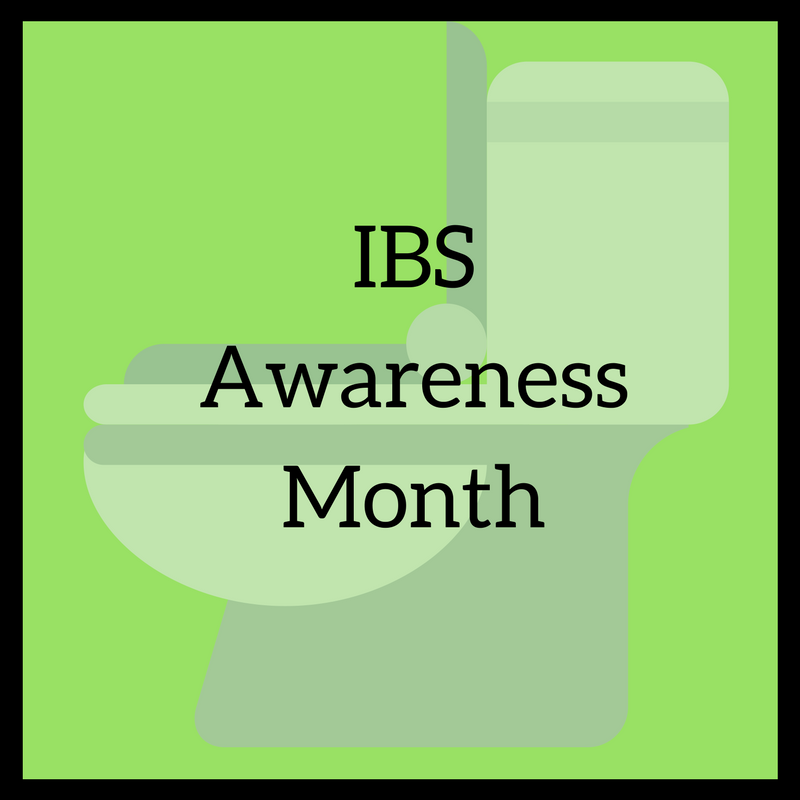LET’S TALK ABOUT IBS…

Cramping, urgency, bloating and gas. All hallmarks of the infamous IBS, or Irritable Bowel Syndrome. We all know that anything called a “syndrome” usually means that the medical profession doesn’t know what the heck causes it, or how to treat it. Yet, millions of people suffer from it on a regular basis.
If you are lucky, it is just uncomfortable, and a bit unpredictable. If you aren’t, well…it can really interfere with your life.
I have worked with clients who, until coming to see me, have had to quit their jobs or school because of the time they need to miss from either. Eventually, it can get you so down, that you don’t know where to turn.
You try cutting out certain foods, and you get some relief for a little while, and then 2 weeks later, the symptoms return, even though those foods have been removed from your diet. In dire cases, people are left with 3-4 food items that do not irritate them, or cause them to run to the bathroom on the half hour. Often, patients in this situation will go through a battery of medical tests to “rule” out other chronic illnesses like Crohn’s Disease or Colitis. Great that they can be ruled out, but now what? How is one supposed to deal with IBS?
Did you know that April is IBS AWARENESS MONTH?
The Canadian Digestive Health Foundation (CDHF) reports that approximately 2 million Canadians suffer from digestive disorders. To put this number in perspective, heart disease, which is one of the leading causes of death, reportedly affects 1.3 million Canadians each year.
Digestive disease and disorders are essentially an epidemic, yet, do most of us even recognize how important good digestion is to our overall health?
While the remedies can vary by individual, we do know that modifications to diet and lifestyle can have a tremendous impact in helping to banish symptoms of IBS.
Some key dietary recommendations:
- Additional fibre – helps to regulate bowel movements. The North American Diet is lacking in fibre. Ground Flax seeds, chia seeds, and psyllium can all be added to help reduce diarrhea.
- Drink tons of water. What’s tons? Well, drink alot and if you think that’s enough, it probably isn’t so drink some more. You need to drink enough water to ensure that the fibre can move through your intestines. Aim for 8-10 glasses per day. Herbal teas (non-caffeinated) are good too.
- Avoid coffee, sugar, sugar-free gum (aspartame), dairy, commercially baked goods, processed foods, and all forms of modified or hydrogenated oils (hello margarine, I’m talking to you!) and gluten. Alcohol and tobacco can also be irritating to the stomach and intestines.
- Some people need to eliminate “gassy” foods such as beans, broccoli, and cabbage. Try it and see if that makes a difference to you.
- Investigate and eliminate food allergies or intolerances. The most allergenic foods are wheat/ gluten, cow’s milk dairy, eggs, soy, corn, seafood and nuts.
Some key lifestyle considerations:
- Take your time when you eat and chew your food carefully and thoroughly. Digestion begins in the mouth.
- Daily meditation: If you do not already meditate, I highly recommend that you begin meditating on a regular basis. Take the time to practice, it is an acquired skill and may take some getting used to, but the benefits to your nervous system and your digestive system are immeasurable.
A few supplements you can consider:
- Liquid multivitamin: Because of the increased incidence of diarrhea, you may not be absorbing all of the nutrients in the foods you eat. A liquid version will be more easily assimilated by the body.
- L-glutamine: An amino acid which is meant to support the stomach lining and the walls of the intestine.
- Omega 3 fatty acids: Anti inflammatory and have been shown to encourage bacterial diversity.
- Probiotics: To replenish the good bacteria in the intestines.
- Digestive Enzymes: Will help to break down food for easier assimilation and absorption.
I suggest that you purchase quality grade supplements from a reputable health or specialty store. They will be a bit more expensive, but you will be getting a more complete supplement, one that is not padded with fillers, which are synthetic and more difficult for your body to digest. It is best to consult with a practitioner who is knowledgeable in this area and is also aware of other supplements and medications that you may be taking. I encourage my clients to check with their doctor before taking a new supplement.
It is important to note that all of the above tips are general in nature. There is no one size fits all solution for those that suffer from chronic digestive issues, or IBS. It can be really helpful to seek out the advice of a professional with expertise in this area to help you to assess, address and ultimately resolve this issue.
During a Flare Up:
- Follow a bland diet of mostly cooked vegetables and homemade bone broth.
- Avoid too many legumes, grains, nuts and seeds – all can be harder to digest.
- Drink tons of water, and add a fibre supplement.
- Peppermint, licorice, chamomile, fennel and lemon teas may help with digestive bloating.
It is not likely that you arrived at this set of circumstances overnight, and therefore, it may require time to help your system get back on track and start to function optimally again.
Do not give up hope.
Here is my delicious and soothing bone broth recipe. The key is to add apple cider vinegar, which helps to leach the important gut-soothing minerals from the bones, and to cook it over a long period of time.
SHIFT TRADITIONAL AND HEALING BONE BROTH

What you need:
-Chicken bones
-Water to cover
-3-4 tbsp apple cider vinegar (adding ACV to the water helps to bring the minerals out of the bones)
-Sea Salt and freshly ground Black Pepper
-1 Bay Leave
-3 garlic cloves
-Vegetables such as onions, carrots and celery
What you do:
-Place bones into a large stock pot and cover with water.
-Add two tablespoons of apple cider vinegar to water prior to cooking. This helps to pull out important nutrients from the bones.
Fill stock pot with filtered water. Leave plenty of room for water to boil.
-Heat slowly. Bring to a boil and then reduce heat to simmer for at least six hours. Remove scum as it arises.
-Cook at low heat. Chicken bones can cook for up to 24 hours. A low and slow cook time is necessary in order to fully extract the nutrients in and around bone.
– After cooking, the broth will cool and a layer of fat will harden on top. This layer protects the broth beneath. It is usually white in colour. Discard this layer only when you are about to eat the broth.
Do you have questions?
Would you like to learn about working with a Registered Holistic Nutritionist?
Would you like some support on how to develop and navigate through a nutrition-based solution that is personalized for you.
Click here to schedule your comlimentary mini session today. https://bonniewisener.com/contact-4/
xo


